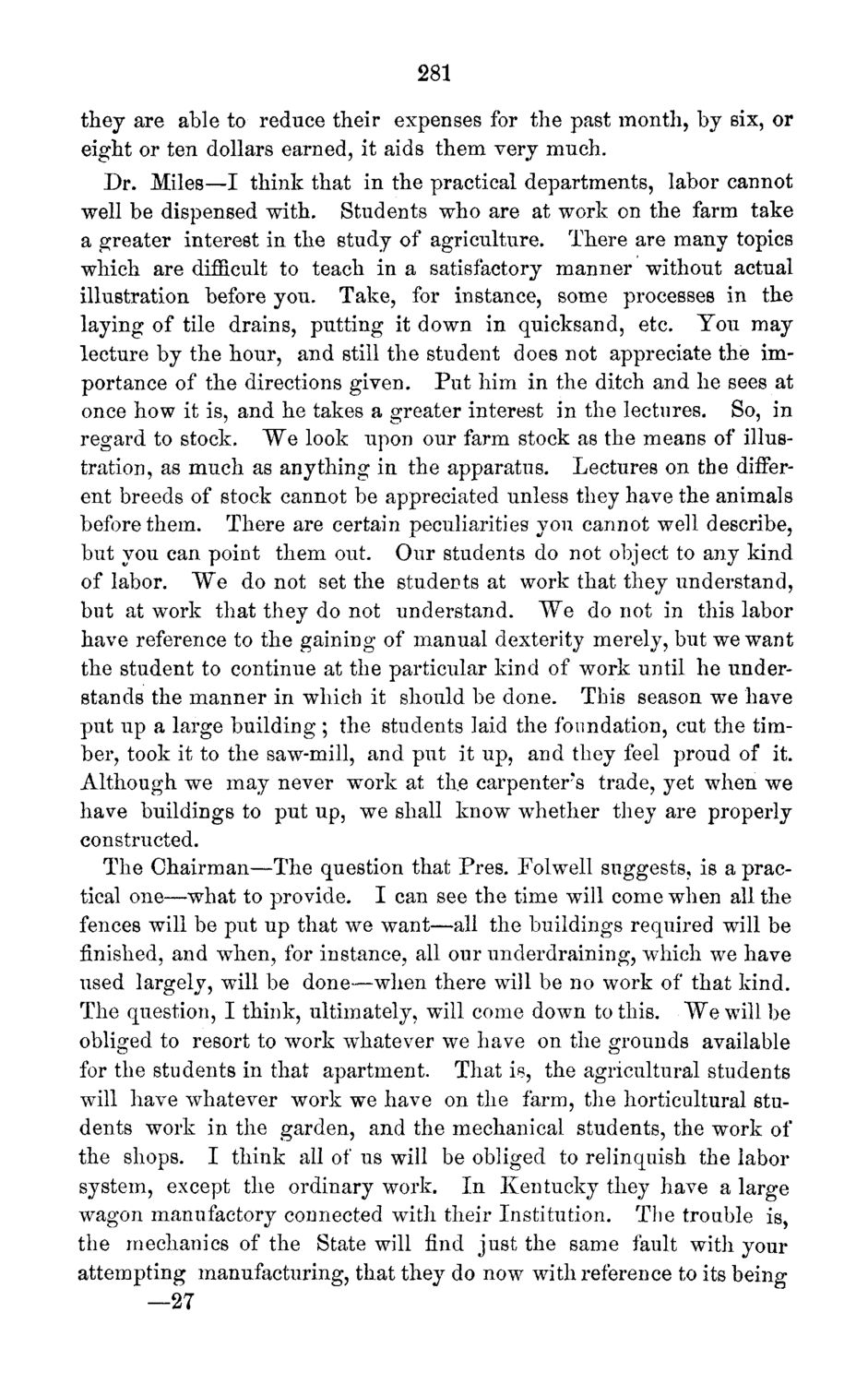| |
| |
Caption: Board of Trustees Minutes - 1871
This is a reduced-resolution page image for fast online browsing.

EXTRACTED TEXT FROM PAGE:
281 they are able to reduce their expenses for the past month, by six, or eight or ten dollars earned, it aids them very much. Dr. Miles—I think that in the practical departments, labor cannot well be dispensed with. Students who are at work on the farm take a greater interest in the study of agriculture. There are many topics which are difficult to teach in a satisfactory manner without actual illustration before you. Take, for instance, some processes in the laying of tile drains, putting it down in quicksand, etc. You may lecture by the hour, and still the student does not appreciate the importance of the directions given. Put him in the ditch and he sees at once how it is, and he takes a greater interest in the lectures. So, in regard to stock. "We look upon our farm stock as the means of illustration, as much as anything in the apparatus. Lectures on the different breeds of stock cannot be appreciated unless they have the animals before them. There are certain peculiarities you cannot well describe, but you can point them out. Our students do not object to any kind of labor. We do not set the students at work that they understand, but at work that they do not understand. We do not in this labor have reference to the gaining of manual dexterity merely, but we want the student to continue at the particular kind of work until he understands the manner in which it should be done. This season we have put up a large building ; the students laid the foundation, cut the timber, took it to the saw-mill, and put it up, and they feel proud of it. Although we may never work at the carpenters trade, yet when we have buildings to put up, we shall know whether they are properly constructed. The Chairman—The question that Pres. Folwell suggests, is a practical one—what to provide. I can see the time will come when all the fences will be put up that we want—all the buildings required will be finished, and when, for instance, all our underdraining, which we have used largely, will be done—when there will be no work of that kind. The question, I think, ultimately, will come down to this. We will be obliged to resort to work whatever we have on the grounds available for the students in that apartment. That is, the agricultural students will have whatever work we have on the farm, the horticultural students work in the garden, and the mechanical students, the work of the shops. I think all of us will be obliged to relinquish the labor system, except the ordinary work. In Kentucky they have a large wagon manufactory connected with their Institution. The trouble is, the mechanics of the State will find just the same fault with your attempting manufacturing, that they do now with reference to its being —27
| |